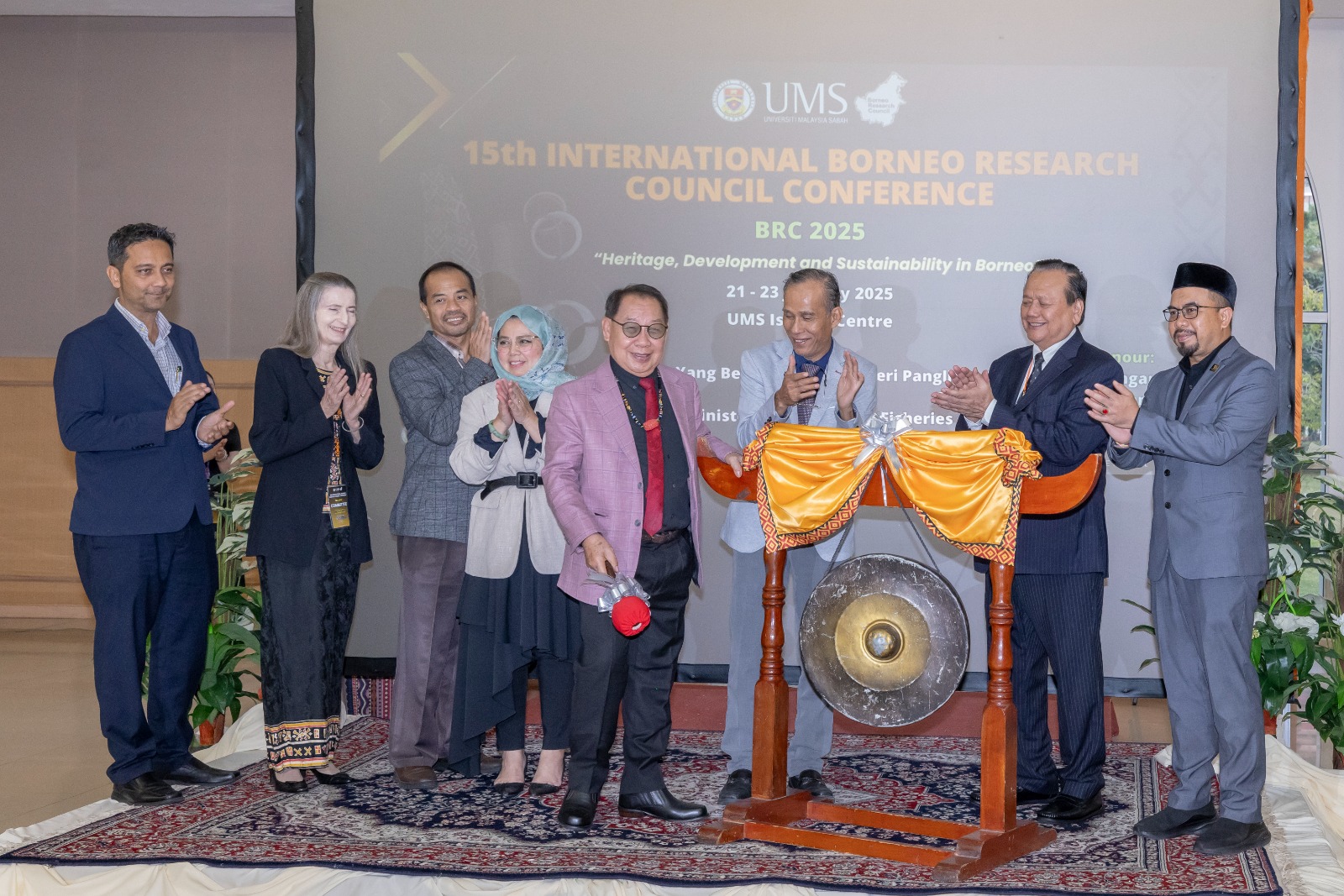
Universiti Malaysia Sabah (UMS) has been chosen to host the 15th Borneo Research Council (BRC) International Conference, bringing together academics and researchers from both local and international institutions to discuss various aspects of Borneo studies.
The conference was officially inaugurated by Sabah Deputy Chief Minister and Minister of Agriculture, Fisheries, and Food Industry, Datuk Seri Panglima Dr. Jeffrey G. Kitingan.
In his speech, Jeffrey highlighted that BRC has consistently supported and promoted research in social sciences, biology, environmental, and medical fields in Borneo since its establishment in 1968.
“The selection of UMS as this year’s host underscores the university’s commitment to advancing knowledge about the Borneo archipelago.
“Borneo, the third-largest island in the world, holds strategic significance in Southeast Asia and is renowned for its rich biodiversity and unique geological features, including Mount Kinabalu, the highest peak in the region.
“The island has been a hub for migration and human social development for thousands of years, with North Borneo—now known as Sabah—believed to be a primary dispersal point for Austronesian communities,” he said.
He further noted that linguistic studies, particularly those conducted by the Summer Institute of Linguistics (SIL) Malaysia since the 1970s, have identified 58 major Austronesian languages spoken in northern Borneo, with over 35 languages originating from Sabah.
“These languages, including Dusun, Paitan, and Murut, are unique to the region and have been the subject of extensive genetic and linguistic research at UMS,” he added.
Jeffrey also emphasized the importance of traditional knowledge in environmental sustainability practices, citing the Dusun community’s paddy farming methods in Tambunan as a prime example.
“Traditional rice varieties in the region, known for their resilience and high yield, have been cultivated for generations without the need for chemical fertilizers or pesticides.
“Despite challenges such as declining buffalo populations, farmers continue to uphold these agricultural practices.
“In addition, indigenous river conservation systems known as bombon among the Dusun and tagal among the Rungus have been recognized as effective traditional approaches to environmental sustainability.
“These systems, which involve prohibitions on fishing in designated areas, have been integrated into modern conservation efforts with the support of the Sabah government since 2003,” he explained.
He expressed hope that the conference would serve as an ideal platform to further discuss Borneo’s heritage and traditions while supporting UMS’s ongoing efforts in cultural artifact research and enhancing the understanding of Borneo’s rich legacy.
Earlier, UMS Deputy Vice-Chancellor (Research and Innovation), Prof. Ir. Dr. Rosalam Sarbatly, representing UMS Vice-Chancellor, Prof. Datuk Dr. Kasim Hj. Mansor, stated that UMS's primary research focus encompasses social, biological, natural, and medical sciences in Borneo, particularly in Sabah.
“As a result, UMS has been recognized as a regional reference center for Borneo studies.
“Our research objectives align with BRC’s goals, and I am delighted that UMS has once again been selected to host this prestigious conference,” he said.
He also expressed his hope that all presenters and participants would benefit from productive discussions, meaningful interactions, and the sharing of inspiring ideas and new discoveries.
The three-day conference gathered over 100 participants, including nearly 40 international attendees from Germany, the United States, Canada, Japan, South Korea, Indonesia, Singapore, and Brunei Darussalam.
Also present at the opening ceremony were the Director of the Borneo Institute for Indigenous Studies (BorIIS) UMS, Assoc. Prof. Dr. Normah Abdul Latip, who chaired the organizing committee; Dean of the Faculty of Social Sciences and Humanities, Prof. Dr. Asmady Idris; and the Kadazan-Dusun Chair of UMS, Datuk Seri Panglima Clarence Bongkos Malakun.


